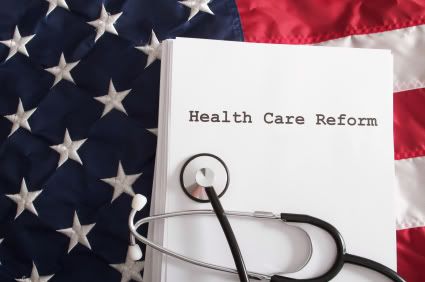Justice Roberts’ upholding of the individual mandate in the Affordable Care Act as a tax rather than a fine or a penalty was quite a surprise for everyone anticipating this morning’s SCOTUS decision.
Obviously it’s a good thing that the Court left the Commerce Clause (Article 1, Section 8, Clause 3) of the Constitution alone. This case raised the possibility of powerful Congressional regulation of activity within the states under the argument that certain local activities actually affect interstate trade or “intercourse” (as defined by Justice John Marshall, Gibbons v Ogden in 1824). The famous and now frequently cited Wickard v. Filburn (1942) was bad enough.
Some advocates of the Affordable Care Act argued that insurance companies contribute to interstate commerce when they cover medical expenses, and so the Commerce Clause is indeed applicable. Those who opposed this interpretation said there was still an important distinction between “activity” and “inactivity,” and that government should not penalize Americans for not buying health insurance. The rationale was that if the government could do this under the Commerce Clause, then what couldn’t it do under the Commerce Clause?
Doesn’t this argument still apply with regard to taxation for not buying health insurance? What did Justice Roberts intend when he upheld an individual mandate to purchase health insurance based on Congress’ ability to tax? My understanding is that the individual mandate was specifically not presented or argued as a health care tax in the first place.
George Mason University law professor Eric R. Claeys noted in a paper last year that traditionally “conservative” justices would likely decide this case by following either originalist principles, or by exercising judicial restraint and essentially deferring to the political branches of government. An originalist would find no reason to uphold the Affordable Care Act under the Commerce Clause, for example, because as Claeys spells out, an originalist believes that laws covering in-state insurance do NOT regulate commerce among the states; an individual mandate does NOT equal commerce; and imposing a mandate does NOT equal regulating.
Justice Roberts certainly didn’t uphold the proposed Affordable Care Act under the Commerce Clause (or the Necessary and Proper clause) but his decision wasn’t rooted in originalism. He also didn’t find a reason not to uphold the proposed law despite how it was argued. By bringing the language of taxation to the fore, Justice Roberts may have merely kept the law alive and expanded the government’s power to condition our behavior through taxation of inactivity. But is it possible that he exercised some “judicial restraint” by essentially deferring to the political branches and throwing the question back at legislators?


